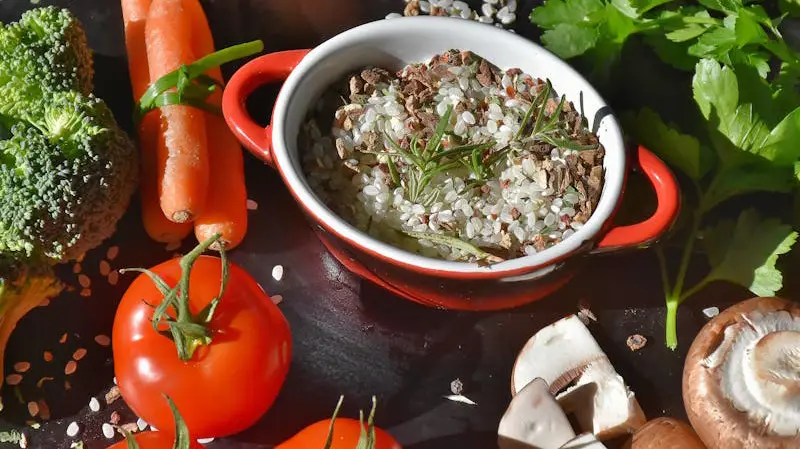Antioxidants are powerful compounds found in abundance in certain foods and also available as dietary supplements. Let’s explore the role of antioxidants in combating oxidative stress, reducing risk of chronic illnesses, and improving overall health and wellbeing.
Antioxidants and Free Radicals
What is Oxidative Stress?
The stress as a result of imbalance between radical production and our body’s ability to neutralize their harmful effects. These radicals are highly reactive molecules that can damage our body cells and DNA structure, and in turn lead to health issues.
Environment factors like smoking, pollution, and UV (ultraviolet) exposure increase production of free radicals in our body and hence risk of oxidative stress.
The Role of Antioxidants
Antioxidants neutralize free radicals in body, protecting cells and tissues from oxidative damage. They do this by donating electrons to free radicals, and stabilizing them to prevent their harmful effects of stealing electrons from other molecules and distorting their structure.
Our body can produce its own antioxidants, but we can also get them through a balanced diet or dietary supplements.
Some vitamins and minerals, like vitamins C and E and the minerals copper, zinc, and selenium, serve as antioxidants, in addition to other vital roles.
Free radicals lack a full complement of electrons, they can steal these electrons from other molecules and damage those molecules in the process. Therefore Antioxidants neutralize these free radicals by giving up some of their own electrons. In doing this, they act as a natural “off” switch for the free radicals. This helps break a chain reaction that can affect other molecules in the cell and other cells in our body.
However, free radicals can be damaging by their nature, they are an inescapable part of life. The body generates free radicals in response to environmental factors, such as tobacco smoke, ultraviolet rays, and air pollution, but they are also a natural byproduct of normal processes in cells. When our immune system musters (syn) to fight intruders, for example, the oxygen it uses spins off an army of free radicals that destroy viruses, bacteria, and damaged body cells in an oxidative burst. Some normal production of free radicals also take place during exercise. This appears to be necessary in order to induce some of the beneficial effects of regular physical activity, such as sensitizing our muscle cells to insulin.
Disease-fighting Antioxidants
Antioxidants help reduce risk of many illnesses including heart disease and some types of cancer. Since they prevent the damage to body by oxidation, studies have shown that people who consume antioxidants rich foods like apricots, tomatoes, pink grapefruit are less likely to develop prostate cancer. Many antioxidants rich foods include the food molecules Lycopene, and Lutein, and flavonoid, which prevent many metabolic-related diseases and cancer.
Sources of Antioxidants
Plant foods are a rich source of antioxidants. They are most abundant in fruits and vegetables, and other foods like nuts, wholegrains and some meats, poultry and fish.
Some good sources of antioxidants include:
- allium sulphur compounds – leeks, onions and garlic
- anthocyanins – eggplant, grapes and berries
- beta-carotene – pumpkin, mangoes, apricots, carrots, spinach and parsley
- catechins – red wine and tea
- copper – seafood, lean meat, milk and nuts
- cryptoxanthins – red capsicum, pumpkin and mangoes
- flavonoids – black and green tea, citrus fruits, onion and apples
- indoles – cruciferous vegetables such as broccoli, cabbage and cauliflower
- isoflavonoids – soybeans, tofu, lentils, peas and milk
- lignans – sesame seeds, bran, whole grains and vegetables
- lutein – green, leafy vegetables like spinach, and corn
- lycopene – tomatoes, apricots, pink grapefruit and watermelon
- manganese – seafood, lean meat, milk and nuts
- polyphenols – herbs
- selenium – seafood, offal, lean meat and whole grains
- vitamin A – carrots, sweet potatoes, milk, and egg yolks
- vitamin C – vegetables like oranges, mangoes, broccoli, spinach, capsicum, blackcurrants, kiwifruit, and strawberries
- vitamin E – vegetable oils (like wheatgerm oil), avocados, nuts, seeds and whole grain foods
- zinc – seafood, lean meat, milk and nuts
- zoochemicals – red meat, offal and fish, and from the plants that animals feed on.
- Vitamin supplements and antioxidants
Studies show that antioxidants are more effective when obtained from Whole Foods rather than from supplements.
Moreover, antioxidants minerals and vitamins act as pro-oxidants or damaging oxidants when consumed beyond the recommended amount.
A balanced diet that includes antioxidants consumption from Whole Foods is most beneficial. While taking supplements, always refer to a dietitian and take them up to the recommended levels only.
As part of a healthy diet, we can consume our daily antioxidants intake from a variety of 5 main food groups.
- Vegetables, Beans or Legumes
- Fruits
- Grain foods and Cereals
- Poultry, Lean Meat like Fish, Eggs, Tofu
- Nuts and Seeds
- Dairy Products, specifically ones with reduced fat.
The Australian Dietary Guidelines gives detailed information on recommended servings and portions for specific ages, life stage and gender.
Seek advice from your doctor or dietitian for best advice on recommended intake for your body.

